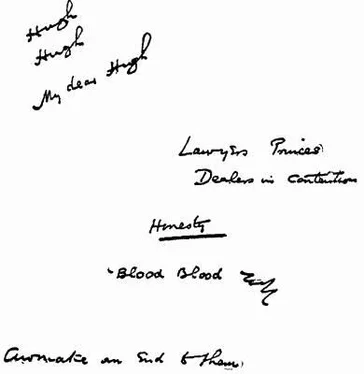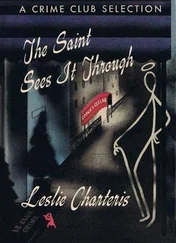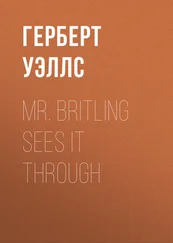Herbert Wells - Mr. Britling Sees It Through
Здесь есть возможность читать онлайн «Herbert Wells - Mr. Britling Sees It Through» весь текст электронной книги совершенно бесплатно (целиком полную версию без сокращений). В некоторых случаях можно слушать аудио, скачать через торрент в формате fb2 и присутствует краткое содержание. Жанр: Классическая проза, на английском языке. Описание произведения, (предисловие) а так же отзывы посетителей доступны на портале библиотеки ЛибКат.
- Название:Mr. Britling Sees It Through
- Автор:
- Жанр:
- Год:неизвестен
- ISBN:нет данных
- Рейтинг книги:4 / 5. Голосов: 1
-
Избранное:Добавить в избранное
- Отзывы:
-
Ваша оценка:
- 80
- 1
- 2
- 3
- 4
- 5
Mr. Britling Sees It Through: краткое содержание, описание и аннотация
Предлагаем к чтению аннотацию, описание, краткое содержание или предисловие (зависит от того, что написал сам автор книги «Mr. Britling Sees It Through»). Если вы не нашли необходимую информацию о книге — напишите в комментариях, мы постараемся отыскать её.
Mr. Britling Sees It Through — читать онлайн бесплатно полную книгу (весь текст) целиком
Ниже представлен текст книги, разбитый по страницам. Система сохранения места последней прочитанной страницы, позволяет с удобством читать онлайн бесплатно книгу «Mr. Britling Sees It Through», без необходимости каждый раз заново искать на чём Вы остановились. Поставьте закладку, и сможете в любой момент перейти на страницу, на которой закончили чтение.
Интервал:
Закладка:
"Then the raw material is handed over to a cook. He is a common soldier who has been made into a cook by a simple ceremony. He is told, 'You are a cook.' He does his best to be. Usually he roasts or bakes to begin with, guessing when the joint is done, afterwards he hacks up what is left of his joints and makes a stew for next day. A stew is hacked meat boiled up in a big pot. It has much fat floating on the top. After you have eaten your fill you want to sit about quiet. The men are fed usually in a large tent or barn. We have a barn. It is not a clean barn, and just to make it more like a picnic there are insufficient plates, knives and forks. (I tell you, no army people can count beyond eight or ten.) The corporals after their morning's work have to carve. When they have done carving they tell me they feel they have had enough dinner. They sit about looking pale, and wander off afterwards to the village pub. (I shall probably become a corporal soon.) In these islands before the war began there was a surplus of women over men of about a million. (See the publications of the Fabian Society, now so popular among the young.) None of these women have been trusted by the government with the difficult task of cooking and giving out food to our soldiers. No man of the ordinary soldier class ever cooks anything until he is a soldier.... All food left over after the stew or otherwise rendered uneatable by the cook is thrown away. We throw away pail-loads. We bury meat ....
"Also we get three pairs of socks. We work pretty hard. We don't know how to darn socks. When the heels wear through, come blisters. Bad blisters disable a man. Of the million of surplus women (see above) the government has not had the intelligence to get any to darn our socks. So a certain percentage of us go lame. And so on. And so on.
"You will think all this is awful grousing, but the point I want to make—I hereby to ease my feelings make it now in a fair round hand—is that all this business could be done far better and far cheaper if it wasn't left to these absolutely inexperienced and extremely exclusive military gentlemen. They think they are leading England and showing us all how; instead of which they are just keeping us back. Why in thunder are they doing everything? Not one of them, when he is at home, is allowed to order the dinner or poke his nose into his own kitchen or check the household books.... The ordinary British colonel is a helpless old gentleman; he ought to have a nurse.... This is not merely the trivial grievance of my insulted stomach, it is a serious matter for the country. Sooner or later the country may want the food that is being wasted in all these capers. In the aggregate it must amount to a daily destruction of tons of stuff of all sorts. Tons.... Suppose the war lasts longer than we reckon!"
From this point Hugh's letter jumped to a general discussion of the military mind.
"Our officers are beastly good chaps, nearly all of them. That's where the perplexity of the whole thing comes in. If only they weren't such good chaps! If only they were like the Prussian officers to their men, then we'd just take on a revolution as well as the war, and make everything tidy at once. But they are decent, they are charming.... Only they do not think hard, and they do not understand that doing a job properly means doing it as directly and thought-outly as you possibly can. They won't worry about things. If their tempers were worse perhaps their work might be better. They won't use maps or timetables or books of reference. When we move to a new place they pick up what they can about it by hearsay; not one of our lot has the gumption to possess a contoured map or a Michelin guide. They have hearsay minds. They are fussy and petty and wasteful—and, in the way of getting things done, pretentious. By their code they're paragons of honour. Courage—they're all right about that; no end of it; honesty, truthfulness, and so on—high. They have a kind of horsey standard of smartness and pluck, too, that isn't bad, and they have a fine horror of whiskers and being unbuttoned. But the mistake they make is to class thinking with whiskers, as a sort of fussy sidegrowth. Instead of classing it with unbuttonedupness. They hate economy. And preparation....
"They won't see that inefficiency is a sort of dishonesty. If a man doesn't steal sixpence, they think it a light matter if he wastes half a crown. Here follows wisdom! From the point of view of a nation at war, sixpence is just a fifth part of half a crown ....
"When I began this letter I was boiling with indignation, complicated, I suspect, by this morning's 'stew'; now I have written thus far I feel I'm an ungenerous grumbler.... It is remarkable, my dear Parent, that I let off these things to you. I like writing to you. I couldn't possibly say the things I can write. Heinrich had a confidential friend at Breslau to whom he used to write about his Soul. I never had one of those Teutonic friendships. And I haven't got a Soul. But I have to write. One must write to some one—and in this place there is nothing else to do. And now the old lady downstairs is turning down the gas; she always does at half-past ten. She didn't ought. She gets—ninepence each. Excuse the pencil...."
That letter ended abruptly. The next two were brief and cheerful. Then suddenly came a new note.
"We've got rifles! We're real armed soldiers at last. Every blessed man has got a rifle. And they come from Japan! They are of a sort of light wood that is like new oak and art furniture, and makes one feel that one belongs to the First Garden Suburb Regiment; but I believe much can be done with linseed oil. And they are real rifles, they go bang. We are a little light-headed about them. Only our training and discipline prevent our letting fly at incautious spectators on the skyline. I saw a man yesterday about half a mile off. I was possessed by the idea that I could get him—right in the middle.... Ortheris, the little beast, has got a motor-bicycle, which he calls his 'b——y oto'—no one knows why—and only death or dishonourable conduct will save me, I gather, from becoming a corporal in the course of the next month...."
§ 4
A subsequent letter threw fresh light on the career of the young man with the "oto." Before the rifle and the "oto," and in spite of his fights with some person or persons unknown, Ortheris found trouble. Hugh told the story with the unblushing savoir-faire of the very young.
"By the by, Ortheris, following the indications of his creator and succumbing to the universal boredom before the rifles came, forgot Lord Kitchener's advice and attempted 'seduktion.' With painful results which he insists upon confiding to the entire platoon. He has been severely smacked and scratched by the proposed victim, and warned off the premises (licensed premises) by her father and mother—both formidable persons. They did more than warn him off the premises. They had displayed neither a proper horror of Don Juan nor a proper respect for the King's uniform. Mother, we realise, got hold of him and cuffed him severely. 'What the 'ell's a chap to do?' cried Ortheris. 'You can't go 'itting a woman back.' Father had set a dog on him. A less ingenuous character would be silent about such passages—I should be too egotistical and humiliated altogether—but that is not his quality. He tells us in tones of naïve wonder. He talks about it and talks about it. 'I don't care what the old woman did,' he says, 'not—reely. What 'urts me about it is that I jest made a sort of mistake 'ow she'd tike it. You see, I sort of feel I've 'urt and insulted 'er . And reely I didn't mean to. Swap me, I didn't mean to. Gawd 'elp me. I wouldn't 'ave 'ad it 'appened as it 'as 'appened, not for worlds. And now I can't get round to 'er, or anyfing, not to explain.... You chaps may laugh, but you don't know what there is in it.... I tell you it worries me something frightful. You think I'm just a little cad who took liberties he didn't ought to. (Note of anger drowning uncharitable grunts of assent.) 'Ow the 'ell is 'e to know when 'e didn't ought to? ... I swear she liked me....'
Читать дальшеИнтервал:
Закладка:
Похожие книги на «Mr. Britling Sees It Through»
Представляем Вашему вниманию похожие книги на «Mr. Britling Sees It Through» списком для выбора. Мы отобрали схожую по названию и смыслу литературу в надежде предоставить читателям больше вариантов отыскать новые, интересные, ещё непрочитанные произведения.
Обсуждение, отзывы о книге «Mr. Britling Sees It Through» и просто собственные мнения читателей. Оставьте ваши комментарии, напишите, что Вы думаете о произведении, его смысле или главных героях. Укажите что конкретно понравилось, а что нет, и почему Вы так считаете.






